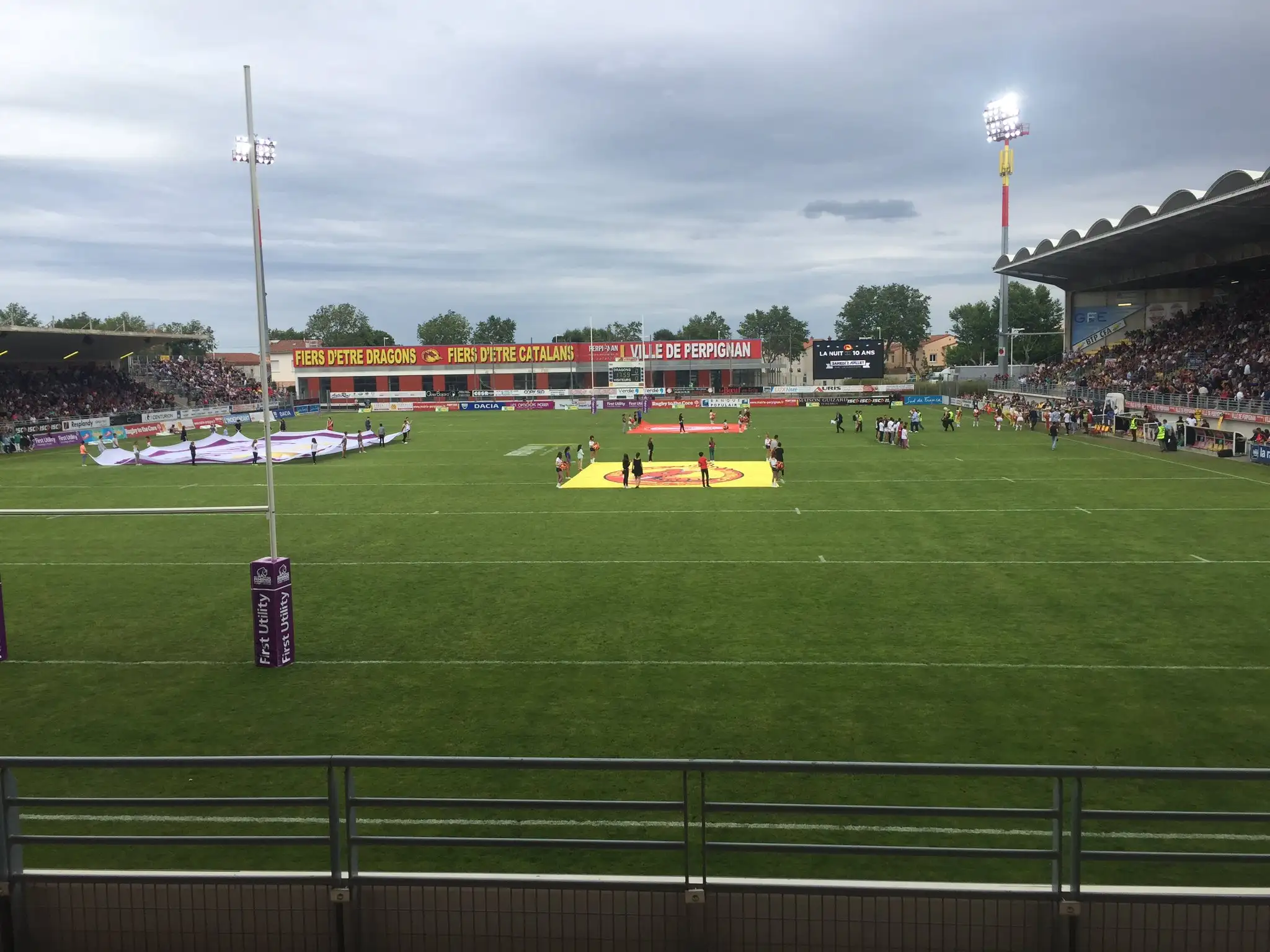Expansionist Blog: Catalans Dragons are the franchise to learn from

Catalans Dragons are the perfect example to other expansion teams, due to the fact that they didn’t rush into anything.
They were originally formed in 2000 as a merger of XIII Catalan and AS Saint-Esteve into Union Treiziste Catalane. UTC went on to win the French Rugby League Championship in 2005 and won the Lord Derby Cup in 2004 and 2005.
The club applied to join the Super League for the 2006 season and were selected by the RFL ahead of Toulouse Olympique and Villeneuve Leopards.
Union Treiziste Catalane was renamed and became Catalans Dragons, but UTC remained in the French Championship to act as a Reserve club for the Dragons, now under the name of Saint-Esteve XIII Catalan.
A brilliant piece of thinking from the club was that they set a target for 75% of their roster had to qualify to play for France as they wanted to improve the game internationally as well as at club level.
Toronto Wolfpack, possibly, should have done this in a bid to grow the game in Canada as well as producing homegrown talent.
Catalans weren’t the first team to play in Super League though, with Paris Saint-Germain featuring in the summer era but only lasted two seasons, due to a lot of issues off the field.
Overall, the idea of having the Dragons in Super League received a lot of positive attention from Rugby League fans in France but some of the other clubs weren’t happy with the fact that the French Rugby League had decided to allow Catalans to sign the best players from other clubs, without paying a transfer fee as they looked to crack the Super League.
And a rule was put in by the RFL that Catalans would not be relegated from Super League for three years, no matter where they finished. This ended up being a good and smart idea.
They won their first ever match in Super League in 2006 against Wigan Warriors at home but unfortunately, they finished bottom of the league but obviously, the three-year relegation exemption rule made them remain in Super League.
The then coach, Mick Potter, made some impressive signings ahead of the 2007 campaign, with the likes of NRL stars Clint Greenshields, Casey McGuire, Jason Croker, Luke Quigley and Aaron Gorrell joining the Dragons.
And the signings evidently made a difference, with them becoming the first ever French side or non-British outfit to reach the Challenge Cup Final after beating Wigan 37-24 in the semi-finals but couldn’t get past St Helens in the final. They enjoyed a better season in Super League as well, finishing in 10th rather than rock-bottom.
In 2008, the Dragons continued to show signs of improvement. They finished third in the table and secured a place in the play-offs but lost in the elimination semi-final to Wigan.
Catalans etched their name into the history books once again in 2009. Their away trip to Welsh outfit Crusaders saw the two clubs play the first ever European Super League fixture which didn’t feature an English team.
And to add to that, the club played the first ever Super League game in Spain in June 2009, as they faced Warrington Wolves at Barcelona’s Estadi Olimpic Lluis Companys, in a bid to promote the game in Catalonia.
The Dragons celebrated it’s 10th year anniversary in 2016 and finished in the Super 8s but failed to seal a spot in the semi-finals.
Steve McNamara’s side have gained good numbers through the gates and most importantly, the numbers they get are consistent and don’t seem to drop.
Perpignan is certainly a hotbed for Rugby League and the up and coming expansion clubs should certainly model themselves on Catalans Dragons.
Fair enough, the South of France has always been a heartland for Rugby League compared to the areas where some of the other expansion teams in the RFL are based, but they still needed to make the franchise a success and they have.
The Dragons attract large numbers from the away fans in each game at the Stade Gilbert Brutus as British fans treat the game in Perpignan as a holiday and spend a couple of days there which is brilliant.
I’ve made the trip once before and it is an incredible experience because you get to watch your team in another country, in the sun (most of the time) and take in the culture of the French Rugby League fans.
The club have all of the foundations in place now and can only grow. It will be interesting to see where they are in their 20-year anniversary in 2026.
And the main key to becoming a successful franchise is taking things one step at a time rather than rushing into things.
Be Catalans, not Crusaders.
